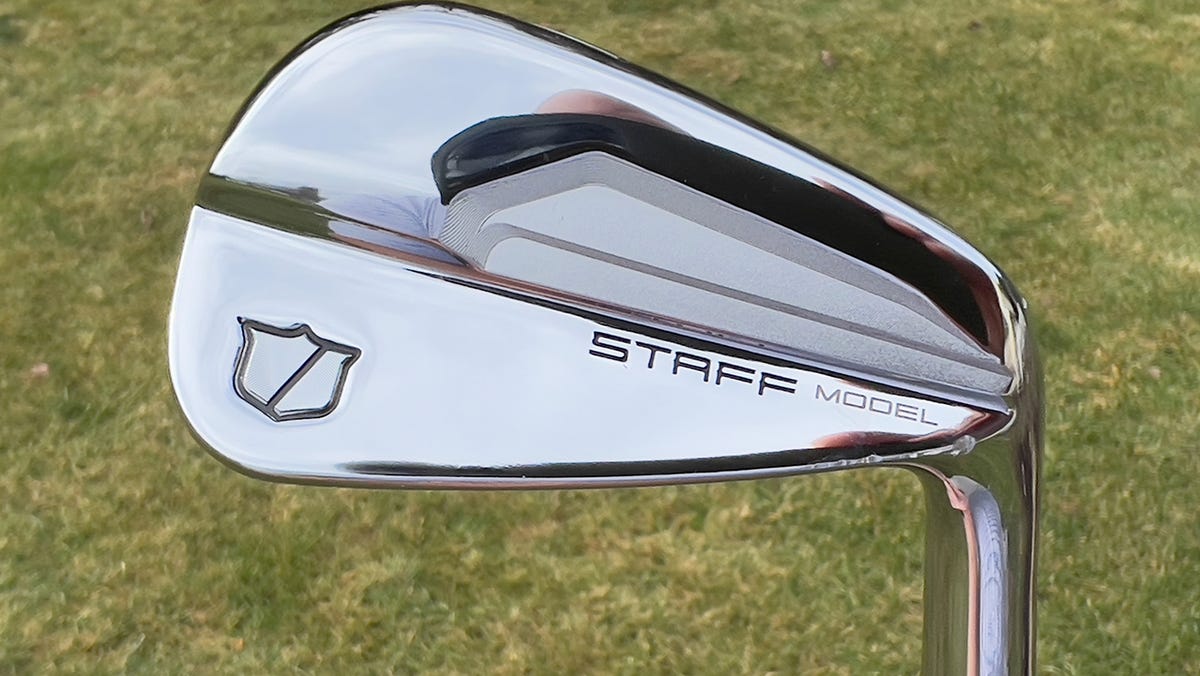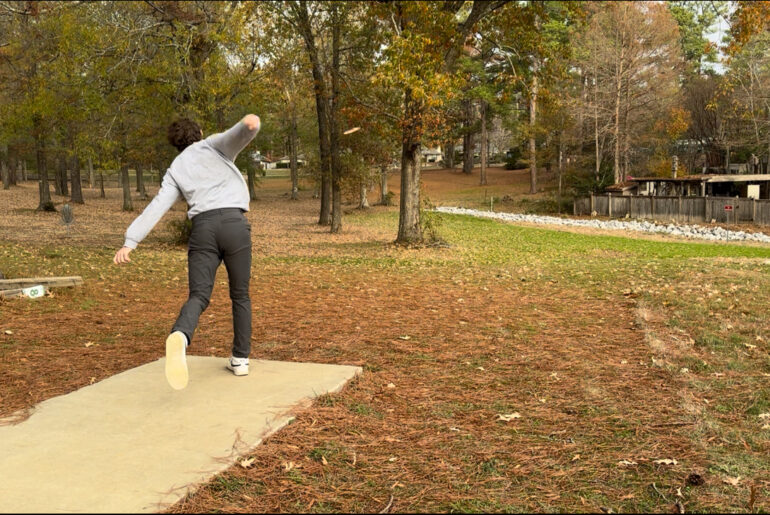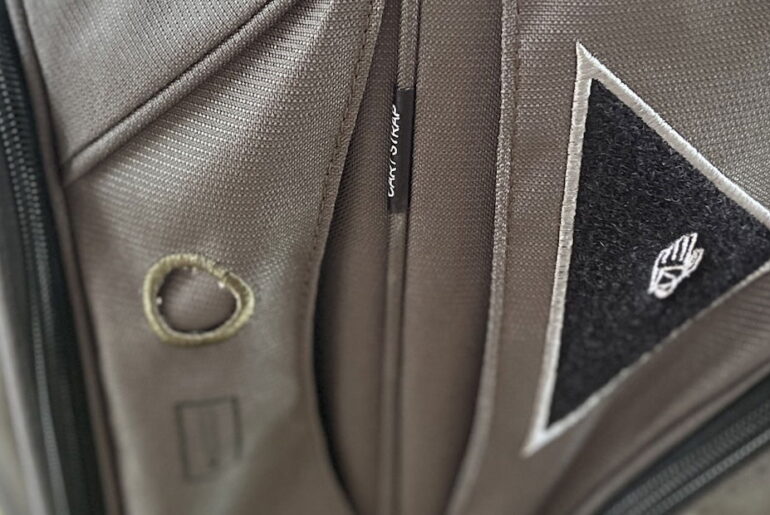Wilson’s Markus McCaine explains how the brand is shifting from value gear to premium clubs for younger, elite players.
Founded in Chicago in 1914, Wilson Sporting Goods has grown into one of the world’s sporting equipment giants. Its products have been used by some of the most recognizable athletes in history. Chris Evert, Pete Sampras, Venus and Serena Williams, and Roger Federer all won Grand Slam titles swinging Wilson racquets. Every NFL game is played with a Wilson football, just as every NBA and WNBA contest tips off with a Wilson basketball. In baseball, the company owns Louisville Slugger, DeMarini and EvoShield, three of the most respected names in the game.
Wilson also has a rich golf history. Padraig Harrington captured three major championships using Wilson clubs. Gary Woodland won the 2019 U.S. Open at Pebble Beach with Wilson irons in his bag, and Ben Crenshaw’s “Little Ben,” the Wilson 8802 blade putter, remains one of the most iconic flatsticks ever made.
Now, Wilson is investing heavily in research and development, growing its team of engineers, and aiming to make clubs that appeal to elite ball-strikers and younger golfers who are taking the game more seriously. Golfweek sat down with Markus McCaine, Wilson’s head of global marketing, to discuss the company’s direction and what’s ahead.
Golfweek: With all due respect, golf is a smaller division within Wilson Sporting Goods. Baseball, football and tennis are enormous. How do you see yourselves, and how does corporate look at Wilson Golf?
Markus McCaine: No, that’s a great question. We’re the smallest business unit at Wilson, which is wild. What I think makes it cool is that it’s also the biggest opportunity. And I think that what’s kind of happened at Wilson over the last 30 years is that all the other sports weren’t No. 1 in market share. Football was kind of always there, but we didn’t always have the NBA deal. We weren’t always No. 1 in tennis. They just kind of go domino by domino. It’s Federer and the Williams sisters, and then we’re gonna go get the NBA deal and skyrocket you in baseball by purchasing Louisville Slugger and DeMarini and EvoShield, and all those brands they add to that portfolio. It’s kind of just been that exact thing, and I think now the eyes are starting to turn to golf. We know what the blueprint looks like in sports equipment.
Golfweek: So, how is Wilson going to change from a legacy brand that was known for value and making gear for the masses and morph itself into something else, gear for a younger, more accomplished crowd?
McCaine: It’s an interesting challenge. I would say that we have had a lot of success in leaning into young players, but it’s good young players. It’s not just saying, ‘Okay, you got to get younger for the sake of getting younger.’ I think a lot of it is intentional by Bob Thurman (Wilson’s global vice president of R&D and general manager of Wilson Golf). It’s been intentional. I am the oldest person on the marketing team at 36. It’s crazy to me. You know, working with 24-, 25-year-old golfers and seeing golf through their eyes — it’s very intentional.
Golfweek: But the majority of people aren’t really good ball-strikers, and that was where Wilson, before, had seemed to try to go after value-minded, recreational, weekend players. It feels like there’s been a really concerted effort to go after much more skilled players, lower-handicap players … and that market is smaller.
McCaine: Obviously, we’re going to keep making game-improvement clubs, too, but I think golf is just kind of inherently aspirational. When I was getting into golf out of college and I was a 30-handicap, I was looking at my 18-handicap buddy trying to figure out how I get there. The 18-handicap is looking at his 10-handicap friend, and so on and so forth up the ladder. It’s kind of that pyramid of influence and attacking it from the top. We want to have stuff for the best players, Tour, and then still make sure that we’ve got the full portfolio of offerings for all different player types.
Golfweek: What category do you want players to associate with Wilson Golf?
McCaine: Irons. That’s what we’ve been known for, that’s what the long heritage is around, and I think that, you know, there’s no secret, that’s what we got away from 30, 35 years ago. We kind of took our eye off of that Staff Model, better player — who mostly plays blades and CBs. We took our eye off of “How do we attract the scratch player and how do we attract the plus-handicap?” and we went into box sets and really focused the business there. You can see how quickly it can shave away the core audience.
Golfweek: How challenging is it from a marketing and business standpoint now to project how the market is going to be in 2026, given the level of volatility and the changing landscape in the business world.
McCaine: Yeah, it’s extremely challenging. I mean, we talk about it every day. How can we manage the political landscape and the geopolitical landscape and all that stuff? It’s obviously a huge topic, but we feel really good about the brand, the momentum, the market share, and what we’re seeing as a business. We feel really good about the products that our team is putting out, so it gives us a lot of confidence. It’s going to be a tough environment one way or another, for everyone. And for us, it’s kind of like, okay, we can manage that and keep our momentum. We’ll be in really good shape.







